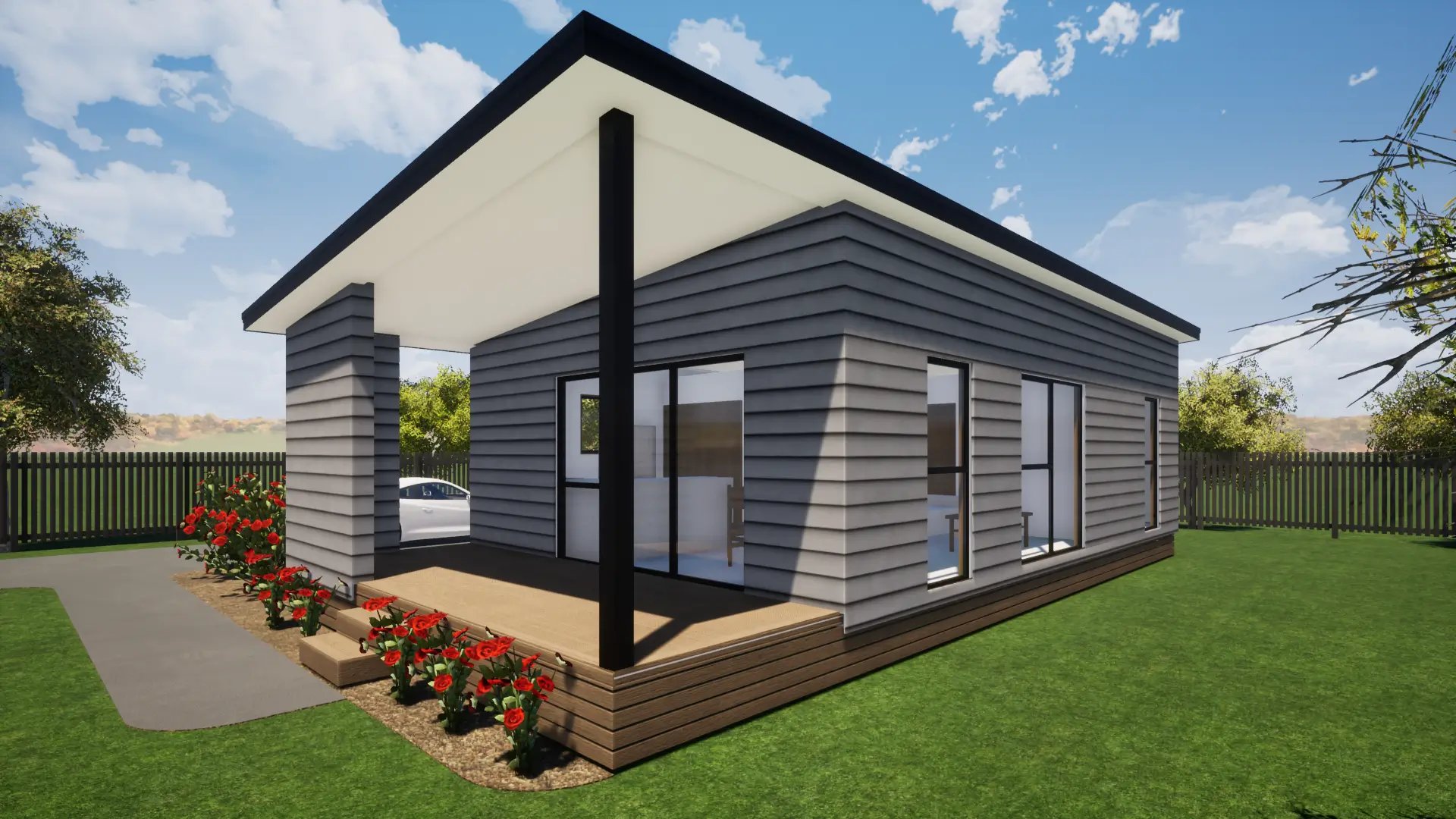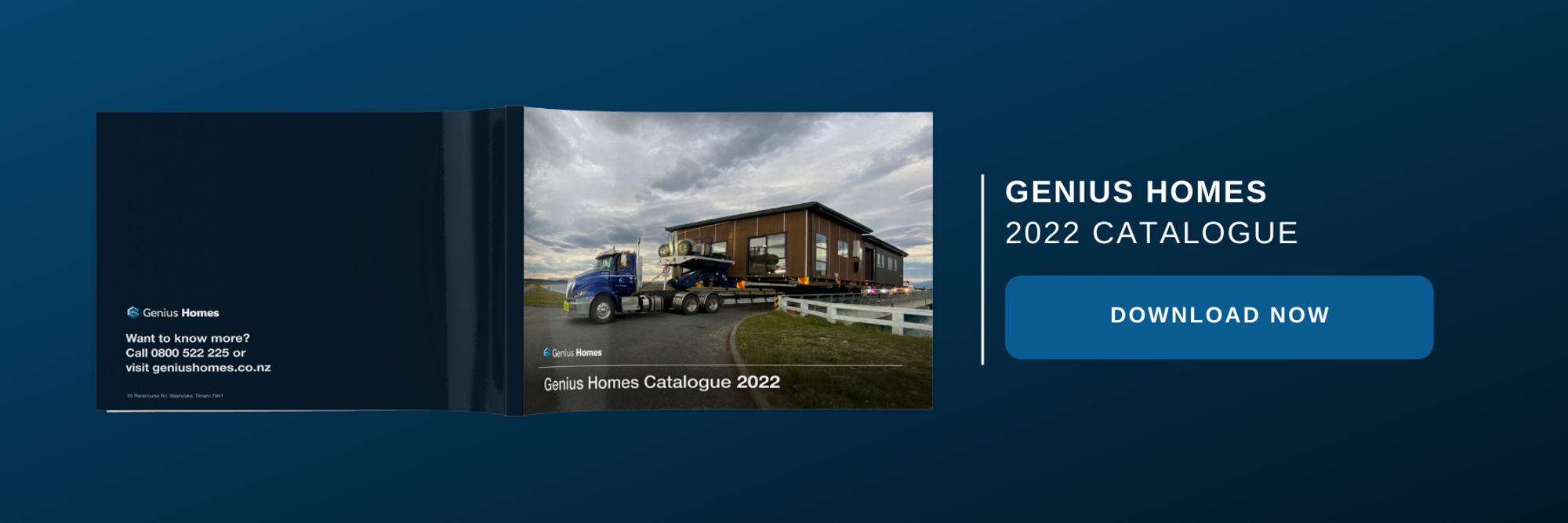How to save money when building a brand new house
With more people looking for a home than ever before and a limited number of houses on the market, more New Zealanders are turning their attention to the possibility of buying a soon-to-be-completed house 'off the plans', or building a new home from scratch. This approach provides the benefits of a brand new, warm and comfortable home that is tailored to your needs and taste. It's also likely to be a more affordable route than bidding against others for a property out of the existing housing stock. With the cost of buying a home the traditional way being higher than ever and a shortage in supply brewing the 'perfect storm', how does building a new home stack up? According to the Real Estate Institute of New Zealand (REINZ)'s latest property report, the national median price for buying a new house is now $795,000, up 30% since last year. However the average price of a new build is currently $378,307. This is an 8.5% increase per m² compared with the year prior, a far smaller percentage than the increase in median house prices.
For those who are looking to build a new home due to the affordability it provides, below we have outlined some additional cost-saving tips to consider four the process.
Research the land you intend to build your home on
You may have found the perfect section to build on, however it's important to do your due diligence before signing the contract. Some of the key factors to check to avoid unexpected expenses include:
- Site condition: If a section has a substantial gradient, difficult soil composition (e.g. sand or clay) or exposure to harsh elements, additional earthworks, such as retaining walls and pilings, and engineering design will often be required prior to the build to ensure a sturdy building foundation.
- Zoning: The zone a section is located in can determine the type of building you can construct and affect everything from its design, to its height and size.
- Covenants: Covenants may also limit your new build to a specific look and style, and what materials and colours can be used for its external features. Covenants can also dictate placement of secondary dwellings (sheds, granny flats), garages and fences.
- Build-ready site: Check if the section already has services connected, such as plumbing and electrical. Developers will typically take care of this in a new subdivision, along with the levies, however it's less common for those building in more rural areas. The site will also need a vehicle crossing to ensure there is adequate access before the construction begins.
- Titles: Property titles give an accurate and up-to-date picture of legal ownership of land in New Zealand. A delay in land titles being signed off can often impact the start date of a new build, especially in new subdivisions.
- Easements: These are also part of a land title and are granted to allow homeowners use of another person's land or property for a particular purpose. It's important to check these carefully with a lawyer to ensure you're both satisfied with the terms.

Consider the design of your new home
House layout
The shape and circumference of a home are important factors in the overall cost of a new build. For example, as a square house has the least perimeter of any shape, it's the cheapest to build as it requires less materials such as cladding, insulation and roofing.
Prioritise features
While there may be some luxury must-have features that you my be wanting in your new home, it's important to be aware that large structural additions, such as wide glass doors, expansive living areas or cantilevered decks, will all add a substantial amount to the overall build cost. Using premium materials (such as cedar) or labour-intensive building methods will also increase the total expenses.
Bigger is not always better
With a reduction in both materials and labour required, building a smaller home is one of the more obvious ways to minimise the cost of your new home. While the median price per m² has increased from $2238 in 2020 to $2428 in 2021, the average cost of a new build has decreased from $428,791 to $378,307 over the same period. This is because as cities densify due to the national housing crisis and the minimum land size continues to decrease in most district plans, there has been a substantial decrease in the size of the homes consented to from a national average of 192m² last year to just 155m² this year.
Many new home owners are recognising the cost-saving benefits of buying a smaller site and building a home with a more compact floorplan. However a reduction in size comes with an emphasis on functional design, as every square metre of the space needs to be well-utilised. Visit our other blog to view the range of Genius Homes designs that are perfect for smaller or narrow sites, such as the 2-bedroom Moeraki design (pictured below).

House from the plans
Building a house from stock plans is much cheaper and more convenient than making alterations and customisations. Not only do stock plans take less time to design and price, which is a huge cost saver, but contractors already know the designs and will take less time in building a house from these plans. Also, stock plans are stock plans for a reason. Homebuilders already know that they will not have issues during the building process and many of the challenges that could increase the cost have been ironed out.
When building with Genius Homes, there are a range of different house plan options to choose from. Ranging from 1 bedroom dwellings to larger family homes, these designs are well thought out and the costings are already allocated. They also feature standard inclusions such as carpet, paint, curtains and fixtures. The designs are customisable and upgrades are common, but it’s important to keep in mind that changes in the designs can increase the time and the cost so it’s worth deciding on your budget, timeframe and priorities before going down the route of a tailored plan.
Choose the right building company & process
What is the best way to prevent going over-budget on a new build project? Our main piece of advice is choosing the right building company and method. With the efficient and streamlined prefabricated home building process, less time is taken to complete the build which has a significant overall cost savings. The factory-built setting reduces potential construction delays, which helps to avoid costs from escalating and your move in date being postponed. Because of the controlled building environment, bulk ordering of materials and the reduced travel for contractors, the pricing can be quite competitive when compared even with a traditional building company.
It does pay to note that every building project is different, so no one will be able to give you a 100% accurate estimate without your plans being drafted first. Feel free to contact the friendly Genius Homes team, as they would be happy to supply a no-obligation quote (including transportation and site costs) so you’re getting an accurate idea of how far your budget needs to go. This will enable you to understand what you could get for your money and might start some great conversations around additional budgeting factors you may not have considered.
If you're looking for a home that suits both your needs and budget, explore our modern prefab design options by downloading the product catalogue. 
